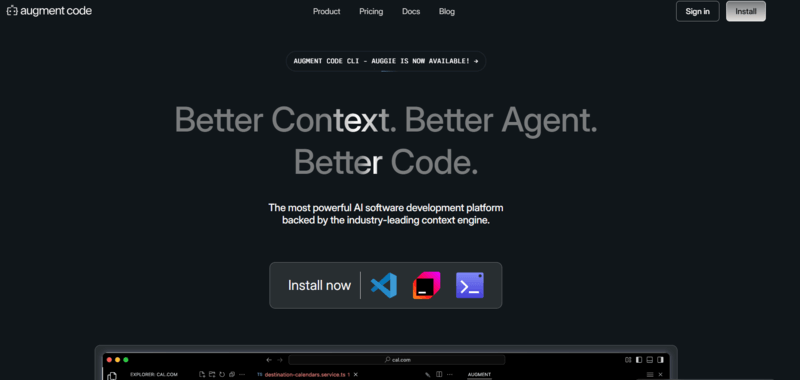- Next Week AI
- Posts
- AI Coding Assistants Compared: Which Tool Fits Your Workflow?
AI Coding Assistants Compared: Which Tool Fits Your Workflow?
Comparing top AI coding assistants — from Cursor and Copilot to open source tools like Cline and Roo Code — to find the best fit for your workflow.

Choosing the Right AI Assistant for Developers
AI-powered editors and agents are rapidly becoming everyday tools for developers. Each solution has its own strengths: some focus on autonomy, others on deep code understanding, and some on flexibility through open source. Below is an overview of the most notable options today.
Trae
Features: Solo Mode (autonomous agent), Figma-to-code, MCP, autocomplete.
Pros: Low cost, seamless VS Code integration, convenient Solo Mode.
Cons: Queue delays on the free plan, little info on system requirements.
Cursor
Features: Codebase awareness, terminal integration, agent mode, project-wide edits.
Pros: Strong context understanding, VS Code interface.
Cons: $20/month Pro plan, free version is restrictive, no MCP support, unstable agent.
Windsurf
Features: Cascade agent, IDE plugins (JetBrains, VS Code, Neovim), live site preview, MCP.
Pros: Multi-IDE support, real-time preview.
Cons: Weak context retention, frequent editing errors.
Cline
Features: Open source VS Code extension, file/terminal/browser agent, MCP.
Pros: Free, supports local models (Ollama, LM Studio), highly customizable.
Cons: Requires setup and learning curve.
Roo Code
Features: Multiple agent “roles” (Architect, Coder, Debugger), conductor, MCP marketplace.
Pros: Powerful team-agent concept, extensible, open source.
Cons: Complex, expensive with advanced models.
Augment
Features: Autocomplete, codebase analysis, collaboration tools.
Pros: High accuracy, enterprise-focused.
Cons: $50 for 600 messages, no MCP, no browser integration.
Kilocode
Features: Fork of Cline/Roo Code with credits-based monetization.
Pros: Open source base.
Cons: Adds little value beyond a paywall.
Void
Features: Open source Cursor alternative, autocomplete, quick edits, chat, checkpoints.
Pros: Free, familiar UI.
Cons: Weaker for large codebases, fewer features.
Replit Agent
Features: Chat-driven code generation inside Replit IDE.
Pros: Easy integration.
Cons: Weak performance, overpriced.
CLI Tools (Gemini CLI, etc.)
Features: Full control from the terminal, multi-model support, API flexibility.
Pros: Free or cheap, very powerful.
Cons: Steep learning curve, not beginner-friendly.
Big Players: Copilot, Claude Code, JetBrains Juni
Features: Stable, integrated assistants.
Pros: Reliability, ecosystem integration, accessible pricing.
Cons: Average functionality, limited innovation.
✅ Quick Comparison
Trae: Cheap, Figma-to-code | Queues on free tier
Cursor: Strong context | Pricey, unstable agent
Windsurf: Multi-IDE, live preview | Loses context often
Cline: Open source, customizable | Requires manual setup
Roo Code: Agent teams, MCP | Complex, costly with models
Augment: Accurate, enterprise-level | $50/600 msgs
Kilocode: Fork of Cline | Useless credit system
Void: Free, open source | Weaker than Cursor
Replit Agent: Easy integration | Weak, expensive
CLI Tools: Powerful, flexible | High entry barrier
Copilot/Claude/Juni: Stable, ecosystem-native | Average feature set
Final Thoughts
AI coding assistants are evolving fast. Some, like Cursor and Copilot, prioritize usability. Others, like Cline and Roo Code, give developers maximum control. The best tool depends on your workflow: whether you need a plug-and-play assistant, deep project context, or open source flexibility.








